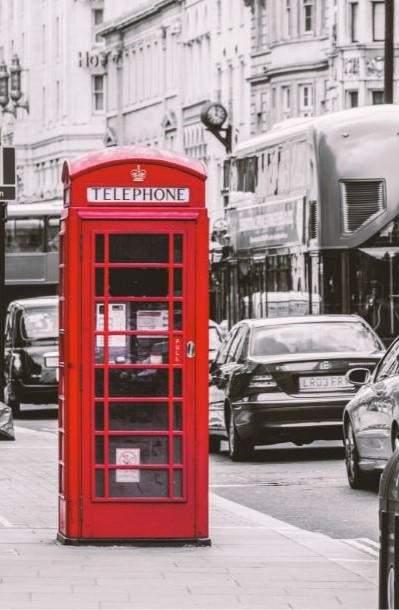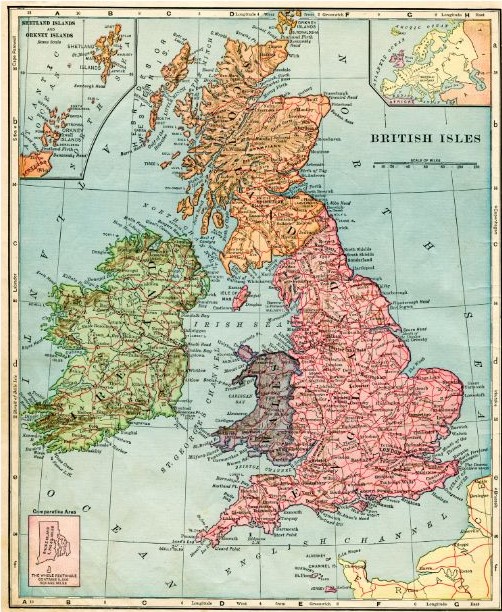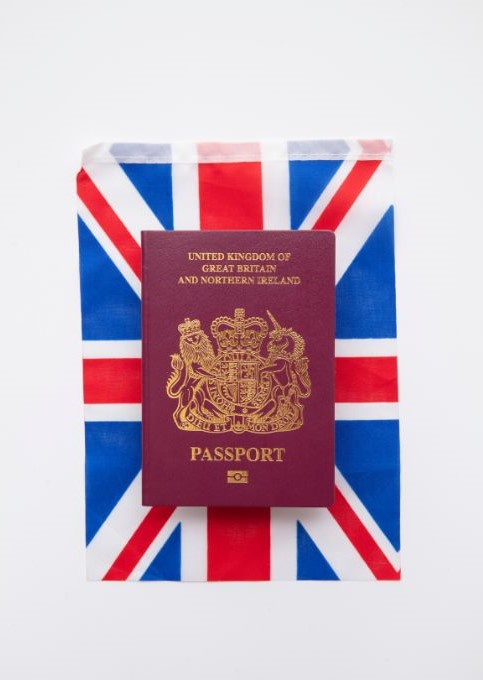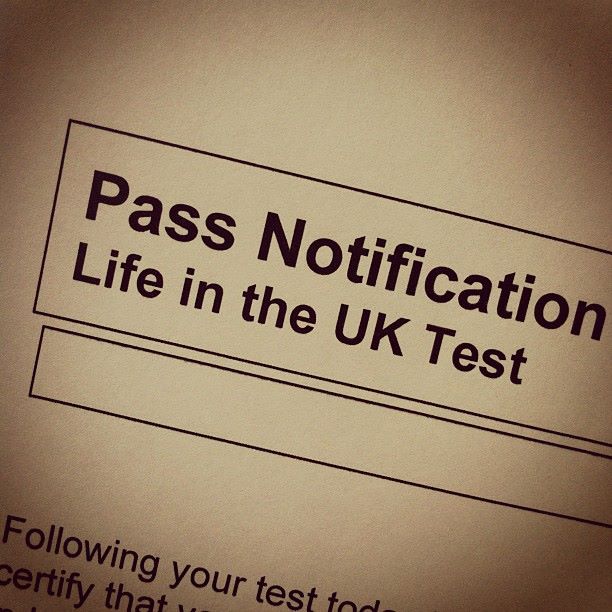Will the Home Office Exercise Discretion When Applying for British Citizenship?
When will the Home Office Exercise Discretion in UK Naturalisation Applications?

There is good news if you are considering applying for British citizenship but are worried about the absence limit. The Home Office understands that certain circumstances may cause you to be absent from the country for extended periods, and this does not necessarily mean that you do not want to become a British citizen.
Many people have expressed concern about exceeding the absence limits, especially due to the COVID-19 pandemic, which prevented them from travelling back to the UK, and this is likely to be a concern for more people in the coming years.
To help clarify the process, we have written this guide explaining how and when the Home Office considers discretion when processing applications for naturalisation as a British citizen, also known as applying for British citizenship.
British Citizenship Application Absence Limits
There are variations of the absent requirements when applying for naturalisation as a British citizen. This is because the residence requirement is five years if you are unmarried to a British or settled (someone with Indefinite Leave to Remain (ILR)). However, if you are married to a British or Settled person, this reduces to three years. Let’s look at the two variations in more detail.
If you ARE NOT married to a British or Settled person
The requirements when applying for British citizenship include being physically present in the UK at the beginning of the 5 years before the date of the application and not spending more than 450 days outside the UK during that period. You must have held indefinite leave to remain for at least 12 months.
Additionally, you must not have been absent from the UK for more than 90 days during the 12 months before the date of application.
If you ARE married to a British or Settled person
If you are a spouse or partner of a British citizen or a person settled in the UK, you must have lived in the UK for at least 3 years. However, in practice, you need to live in the country for at least 5 years to obtain Indefinite Leave to Remain (ILR), although, in your circumstances, there's no need to wait for a year after obtaining ILR.
In addition, you must not have spent more than 270 days outside the UK in the 3 years before the date of your application or more than 90 days outside the UK in the 12 months before your application.
This article has not been written to provide details of the naturalisation requirements and application; you may find further reading on applying for British Citizenship by following this link.
Home Office Discretion in British Naturalisation Applications
As alluded to previously, there is some discretion at the Home Office to waive the residence requirements, except that the applicant must be free from time restrictions under immigration law at the time of their application.
When will the Home Office Exercise Discretion in British Citizenship Applications?
There may be reasons that prevented an applicant from being in the UK at the start of the qualifying period. The Home Office has the power to treat the applicant as having fulfilled this requirement in the unique circumstances of a particular case, even though they were not in the UK at the beginning of the residential period.
If an applicant exceeds the permitted absence limit, the Home Office must consider exercising discretion if the applicant meets other requirements. If the applicant exceeds the limit by 30 days or less, the Home Office must exercise discretion unless there are other grounds on which the application falls to be refused.
The table below outlines the eligibility requirements for naturalisation under Section 6(1) (if not married to a British or Settled person) and Section 6(2) (if married to a British or Settled person) of the British Nationality Act 1981, based on the length of time an applicant has been absent from the UK. The requirements for each category are based on the official guidance provided by the UK government.

Exercising Discretion in Naturalisation as a British Citizen Applications by the Home Office
Qualifying Period: 5/3 years before submission of the application:
Absence limit exceeded by 30 days or less.
If you have spent more than 450 days (not married to a British or Settled Person) or 270 days (if married to a British or Settled Person). The Home Office must exercise discretion unless there are other grounds on which your application falls to be refused.
Not married to a British Citizen of Settled Person: Absences of between 480 and 900 days
If you otherwise meet the requirements, the Home Office must only consider exercising discretion where you have established your home, employment, family and finances in the UK, and one or more of the ‘applicable circumstances’ row explained below apply.
Married to a British Citizen of Settled Person: Absences of between 480 and 900 days
If you otherwise meet the requirements, the Home Office must only consider exercising discretion where you have established your home, employment, family and finances in the UK, and one or more of the ‘applicable circumstances’ row explained below apply.
Applicable Circumstances
- You spent at least 2 years of residence in the UK (if not married to a British or Settled Person) or 1 year (if married to a British or Settled Person) without substantial absences immediately before the 5 or 3 years of residence being relied upon. If the period of absence is greater than 730 days or 450 days, respectively, the period of residence must be at least 3 or 2 years, respectively.
- Your excess absences are the result of:
- You joined a British citizen spouse or civil partner on an appointment overseas.
- Your excess absences were an unavoidable consequence of the nature of your career, such as a merchant seaman or employment with a multinational company based in the UK with frequent travel abroad.
- Your excess absences were due to a global pandemic, and you could not return to the UK.
- There are exceptionally compelling reasons of an occupational or compassionate nature to justify naturalisation now, such as a firm job offer where British citizenship is a statutory or mandatory requirement.
- You undertook a posting(s) abroad in Crown service under the UK government or in service designated under section 2(3) of the British Nationality act 1981.
- You were prevented from being in the UK because you had been removed from the UK, and the decision to remove you was later overturned.
- You were incorrectly prevented from resuming permanent residence in the UK following an absence.
Final Year (absence limit is 90 days in the 12 months before submission of application):
- Absences are 100 days or less.
The Home Office should exercise discretion.
- Absences between 100 and 180 days. Residence requirement over 5/3 years is met.
Where you do not meet the residence requirements over the entire qualifying period (5/3 years), the Home Office may consider exercising discretion if both the following apply:
- You have demonstrated that you have made the UK your home by establishing a home, employment, family, property, and finances in the UK; and
- Your excessive absences are justified by Crown service or by compelling occupational or compassionate reasons, including your inability to travel because of a global pandemic.
- Absences of more than 180 days. Residence requirement over 5/3 years is met.
The Home Office may consider exercising discretion if you have demonstrated that you have made the UK your home.
In practical terms, following the guidance in the previous example is recommended.
- Absences of more than 180 days. The residence requirement for over 5/3 years has NOT been met.
The Home Office must only exercise discretion where you have demonstrated that you have made the UK your home and there are exceptional circumstances such as Crown Service.
The bar is set high for this one.

Conclusion
We hope this guide helps you understand the requirements and circumstances in which the Home Office may consider exercising discretion regarding exceeded absence limits. It's important to note that the information and examples provided are not exhaustive, and each British naturalisation application is considered case-by-case. The above gives a general overview of the requirements for each category, but applicants must review complete eligibility requirements and consider their circumstances before applying. So that you know, the information in this article is based on UK government guidance at the time of writing and may be subject to change. Therefore, checking the latest guidance before submitting a British Citizenship application is essential.
The Home Office acknowledges that life happens, and provisions are in place to exercise discretion in certain situations. If you're unsure about your eligibility for naturalisation, it's best to seek professional legal advice. If your absences exceed those covered in the table, the Home Office will usually refuse your application and advise you to reapply when the statutory requirements are met unless there are specific circumstances that warrant exceptional consideration at a senior level. This is not the end of the world, but it will be costly, so it should be avoided where possible!


Ensure your British Citizenship Application is Accurate
With our expert guidance, we’ll check your eligibility, verify your documentation, and help you avoid costly delays or rejections. Get peace of mind and start your journey to becoming a British citizen today!
With our expert guidance, we’ll check your eligibility, verify your documentation, and help you avoid costly delays or rejections. Get peace of mind and start your journey to becoming a British citizen today!




